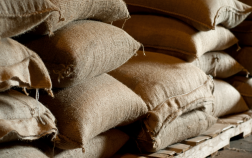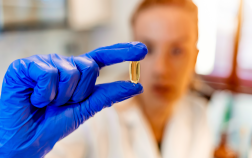
J. David Legan, PhD
Director of Science
David earned his Ph.D. in Food Technology from the University of Reading in the UK by modeling the ecology of mixed microbial populations, and then moved to Campden BRI in a variety of microbiological food safety research and client service roles. During that time, he was project lead for the Bacillus component of the UK’s pathogen modeling program. He moved again to Nabisco Research in New Jersey where he ran the corporate microbiology lab and developed a program of preservation technology development and microbial modeling. After the Kraft Foods acquisition, he moved to Chicago to work on Food Safety and Preservation research, and through modeling and validation studies:
- Optimized Oscar Mayer’s use of lactate and diacetate and their naturally cultured alternatives as Listeria-control agents in Ready to Eat meats
- Specified process conditions central to Oscar Mayer’s commercial launch of High Pressure Pasteurization of naturally cured RTE meats
David had responsibility for the Kraft cultures R&D group, developed a partnership to explore microwave sterilization leading to several patents, and led a program that developed an internal proprietary natural antimicrobial commercialized in several Kraft products. Technologies from his group supported approximately $4 billion in annual sales.
After years as a microbiology "client", he is now back in the "provider" role as Director of Science at Eurofins Microbiology Laboratories, Inc., by way of the Covance Food Solutions group based in Madison, WI, which he joined in 2016. In this role, he ensures appropriate method validation, explores new testing technologies, and fields multiple complicated food microbiology questions.
Products that his team has evaluated or developed and launched include:
- The 3M MDS platform in the Madison microbiology laboratory
- Flow cytometry for enumeration of probiotics
- Strain-level confirmation of probiotic identification using the polymerase chain reaction (PCR)
- Next-generation sequencing using the Oxford Nanopore Technologies GridION sequencing platform for microbial identification and microbiome analysis
Below are resources from David:
As the industry looks ahead, the International Production & Processing Expo (IPPE) offers a pivotal launch point for 2026 and a chance for producers and processors to explore new solutions that strengthen operations. This webinar is designed to help you get a head start. Join us for a preview of the key issues, trends, and testing strategies we’re watching for the year ahead. Originally Aired on December 10, 2025
Postbiotics, defined as non-viable microbial cells, their components, or metabolites that confer health benefits to the host, represent a rapidly expanding frontier in microbiome research and functional ingredient development. Watch this webinar for a comprehensive look at the rapidly evolving field of postbiotics, combining cutting-edge science, global regulatory insights, and practical testing methodologies. Originally Aired on December 11, 2025.
From the growing regions to the production and processing, mycotoxins pose a unique threat to the safety, quality, and marketability of coffee and spices. In this webinar, we expand upon the emerging mycotoxin risks, climate-driven contamination patterns, and the latest testing technologies to ensure compliance and protect your products. Originally Aired on November 12, 2025
The bar aisle is brimming with possibilities—and today’s consumers are more curious and discerning than ever. As expectations rise around flavor, texture, and ingredient transparency, brands have a unique chance to reimagine what a bar can be. This webinar explores the dynamic evolution of the bar category, especially protein bars, and reveals how thoughtful innovation can help your brand rise above the noise and truly connect with consumers. Originally Aired on November 5, 2025
Ensuring the safety, quality, and authenticity of dietary supplements has become increasingly complex in today’s global marketplace. To protect consumers and brands alike, robust quality systems, third-party certifications, and traceability measures are essential. This webinar highlights key integrity challenges facing the dietary supplement industry, from misleading claims to adulteration concerns, and advanced analytical solutions that address them.
Join us for a focused session on Eurofins’ new Product Certification program—designed to set a higher standard for quality and transparency across the dietary supplement, food, and retail industries. Learn why certification matters, how the process works, and what makes Eurofins uniquely qualified to deliver a seal backed by nearly 100 years of testing expertise.
The Innovative FEED Act proposes a modernized regulatory pathway for these zootechnical animal food substances, reclassifying them as food additives and enabling approval through the Food Additive Petition (FAP) process. This webinar provides insights from Eurofins’ experience navigating veterinary product development and highlight how legislative reform can unlock the next generation of feed solutions.
As global demand for animal protein continues to rise, producers, distributors, and suppliers face increasing pressure to meet complex veterinary drug compliance standards. This webinar offers a practical roadmap for navigating the regulatory landscape governing the export of animal protein, with a focus on FDA and USDA requirements, international certification processes, and emerging trade dynamics.
In this webinar, our experts will discuss the latest international regulations, the impact of recycled materials, and how proactive testing strategies can keep your packaging safe and compliant. Originally Recorded on September 17, 2025
With the release of the Make America Healthy Again (MAHA) report, the food and supplement industries are facing a pivotal moment. Join two of our leading experts as they unpack the report’s findings and explore what they could mean for consumer-packaged goods (CPG) companies. From reformulation strategies to enhanced ingredient scrutiny, this session will help industry professionals prepare for a wave of potential changes. Originally Recorded on August 21, 2025












